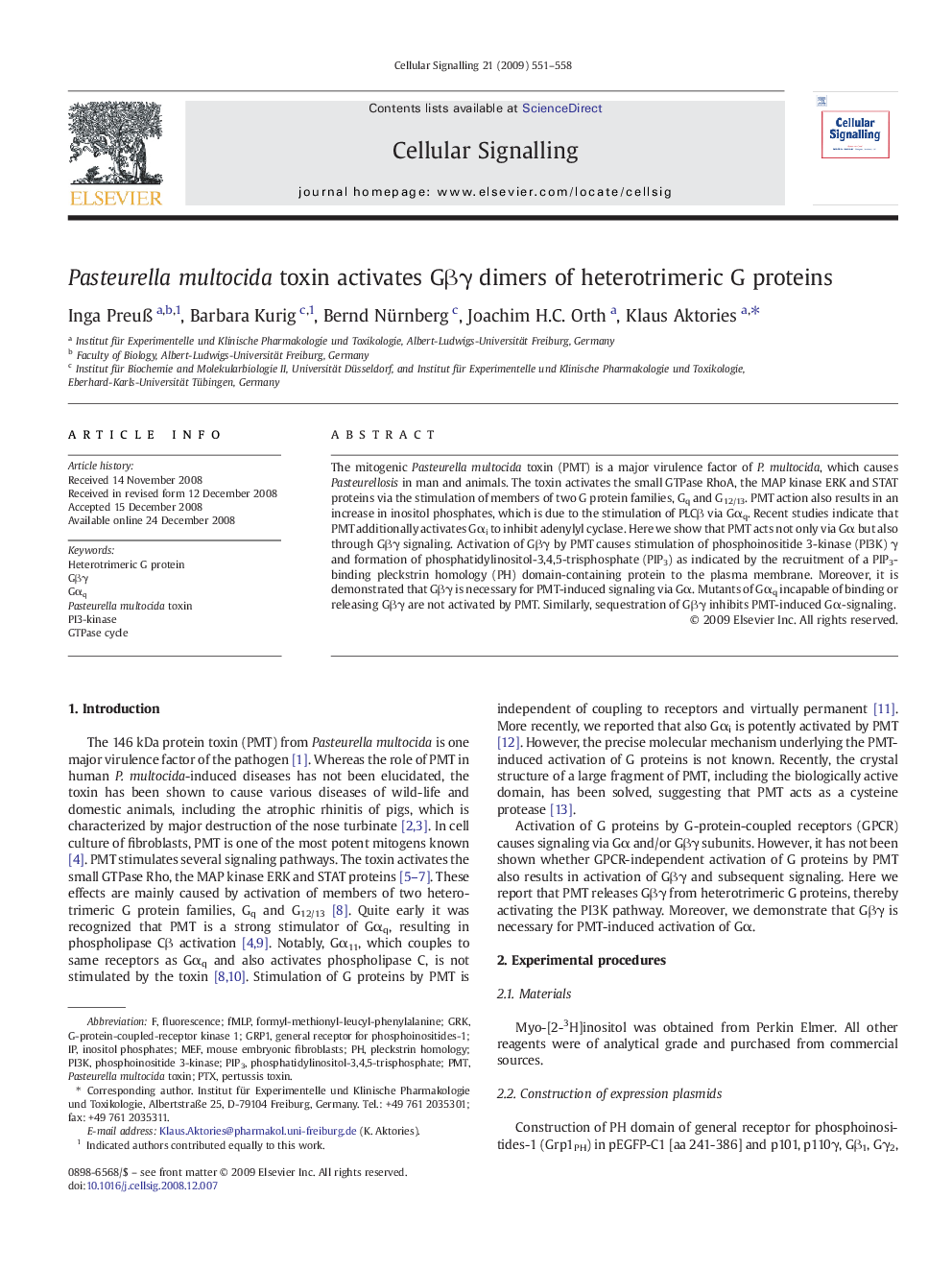| Article ID | Journal | Published Year | Pages | File Type |
|---|---|---|---|---|
| 1964107 | Cellular Signalling | 2009 | 8 Pages |
The mitogenic Pasteurella multocida toxin (PMT) is a major virulence factor of P. multocida, which causes Pasteurellosis in man and animals. The toxin activates the small GTPase RhoA, the MAP kinase ERK and STAT proteins via the stimulation of members of two G protein families, Gq and G12/13. PMT action also results in an increase in inositol phosphates, which is due to the stimulation of PLCβ via Gαq. Recent studies indicate that PMT additionally activates Gαi to inhibit adenylyl cyclase. Here we show that PMT acts not only via Gα but also through Gβγ signaling. Activation of Gβγ by PMT causes stimulation of phosphoinositide 3-kinase (PI3K) γ and formation of phosphatidylinositol-3,4,5-trisphosphate (PIP3) as indicated by the recruitment of a PIP3-binding pleckstrin homology (PH) domain-containing protein to the plasma membrane. Moreover, it is demonstrated that Gβγ is necessary for PMT-induced signaling via Gα. Mutants of Gαq incapable of binding or releasing Gβγ are not activated by PMT. Similarly, sequestration of Gβγ inhibits PMT-induced Gα-signaling.
